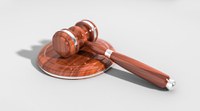What Would Edmund Burke Say? Reflections on the Appointment of the Chief Justice
Appointing the New Chief Justice
The term of office of the current Chief Justice will come to an end on 11 October 2021. The Constitution provides little guidance on the procedure to be adopted when appointing a Chief Justice. All section 174(3) requires is that the President consult the leaders in the National Assembly and the JSC before making such an appointment. This leaves the President with a wide and powerful discretion.
In pursuit of appointing the new Chief Justice, President Ramaphosa has now chosen to appoint a panel of six people to create a shortlist of recommended candidates based on public nominations. The deadline for nominations was 1 October, whereafter objections on each nominated candidate can be made before 15 October. The panel will conduct a “clarification exercise” and shortlist candidates to send to the President. He will consider the list and refer candidates to be interviewed by the JSC.
The panel received 148 nominations resulting in 25 names, as some were nominated more than once. However, only eight candidates met the criteria set out by the President for nominations which included, amongst other things, providing the correct documentation. The eight candidates which the public may object to, and which the panel will consider for shortlisting, are Judge President Hlophe, Justice Madlanga, Justice Maya, Dr Mqoqi, Adv Mkhwebane, Judge President Mlambo, Adv Nelson SC, and Acting Chief Justice Zondo.[i]
At the starting line red flags are raised by firstly, the nomination of Judge President Hlope, against whom the JSC made a finding of gross misconduct and recommended that he be impeached by the National Assembly. Secondly, the nomination of Adv Mkhwebane is also astonishing as she is facing impeachment proceedings. That she has had numerous reports, written in her capacity as Public Protector, overturned by the courts also raises doubts about her grasp of jurisprudential issues . The panel has composed a list of criteria to assist in the shortlisting process.[ii] This is commendable. Given that a candidate is required to be “of unblemished integrity, [and] beyond reproach” the panel would be hard-pressed to justify the recommendation of the above two candidates.
At first glance the process seems to promote transparency in the selection process. However, there are some concerns. The position of Chief Justice can be considered one of the most important positions in our democracy. The current judicial climate makes the appointment of the next Chief Justice all the more important. Integral to a strong and independent Judiciary, which the public can have confidence in, is the Chief Justice. It therefore must be a person of unblemished integrity who embodies the qualities of independence and impartiality, not to mention having the administrative skills which are needed by the head of the Judiciary. It is extraordinary that given the impeachment and removal proceedings which are pending in both cases that they could not only be nominated but that they have actually been placed on the shortlist.
This raises serious questions about the integrity of the process that the President has initiated.
In addition, what is the status of the panel and the recommendations made by it? Essentially, the Constitution only requires the President to consult on the appointment. Will he be bound by the recommendations or can he appoint from outside of this process? Will the process be open to the public or will it be done in private? How will the objections received on the candidates be weighed?
In the long term, this is something which should be addressed. We need a flexible yet more detailed permanent procedure that needs to be followed when appointing a new Chief Justice. This will add legitimacy and credibility to the appointment and will help ensure that the appointment process is not open to abuse.
Finally, given the problems that arose during the previous rounds of Constitutional Court interviews, the public has an interest in ensuring that politics will be kept out of this important decision and rather that the candidate will be chosen based on their abilities, merits and integrity. The selection of the new Chief Justice must be beyond reproach.
Conclusion
As the judges are the guardians of our Constitution and the Rule of Law, the public is entitled to trust in the judges that preside over their cases and part of this trust includes trusting that the procedure to appoint these judges results in the best candidates being chosen. This holds even more so for the appointment of the Chief Justice. We remain sceptical of this process that has been created by the President.
Chelsea Ramsden
Senior Legal Researcher
chelsea@hsf.org.za
[i] “Panel Names 8 Nominees for Position of Chief Justice” available at http://www.thepresidency.gov.za/press-statements/panel-names-8-nominees-position-chief-justice.
[ii]The criteria can be found on the Presidency’s website and forms part of the “Terms of Reference for Shortlisting Panel of Nominations Received for Purposes of Filling the Imminent Vacancy of the Chief Justice of the Republic of South Africa” - http://www.thepresidency.gov.za.

